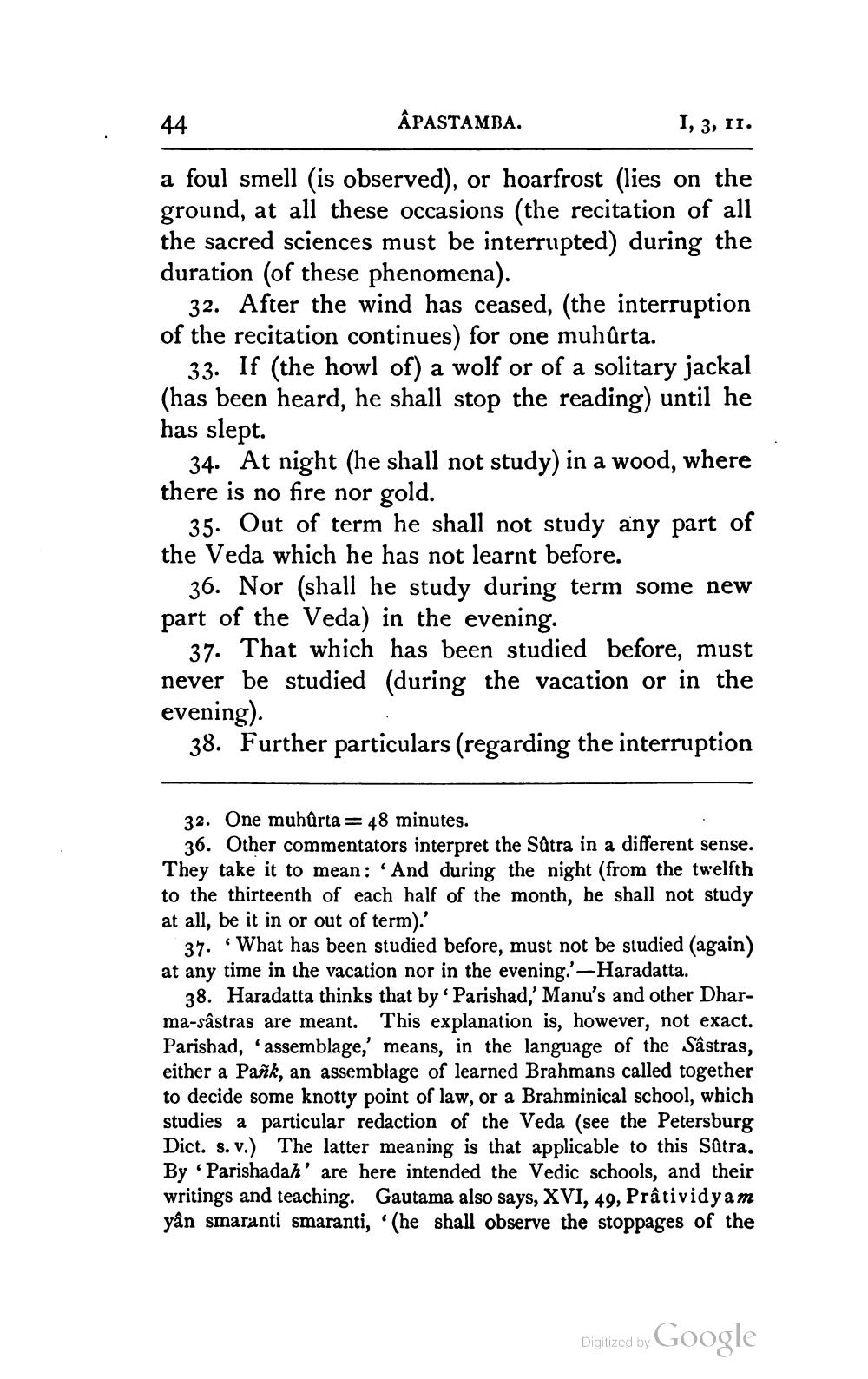________________
ÂPASTAMBA.
44
I, 3, II.
a foul smell (is observed), or hoarfrost (lies on the ground, at all these occasions (the recitation of all the sacred sciences must be interrupted) during the duration (of these phenomena).
32. After the wind has ceased, (the interruption of the recitation continues) for one muhûrta.
33. If (the howl of) a wolf or of a solitary jackal (has been heard, he shall stop the reading) until he has slept.
34. At night (he shall not study) in a wood, where there is no fire nor gold.
35. Out of term he shall not study any part of the Veda which he has not learnt before.
36. Nor (shall he study during term some new part of the Veda) in the evening.
37. That which has been studied before, must never be studied (during the vacation or in the evening).
38. Further particulars (regarding the interruption
32. One muhûrta = 48 minutes.
36. Other commentators interpret the Sûtra in a different sense. They take it to mean: 'And during the night (from the twelfth to the thirteenth of each half of the month, he shall not study at all, be it in or out of term).'
37. What has been studied before, must not be studied (again) at any time in the vacation nor in the evening.'-Haradatta.
38. Haradatta thinks that by 'Parishad,' Manu's and other Dharma-sâstras are meant. This explanation is, however, not exact. Parishad, 'assemblage,' means, in the language of the Sâstras, either a Pank, an assemblage of learned Brahmans called together to decide some knotty point of law, or a Brahminical school, which studies a particular redaction of the Veda (see the Petersburg Dict. s. v.) The latter meaning is that applicable to this Sûtra. By 'Parishadah' are here intended the Vedic schools, and their writings and teaching. Gautama also says, XVI, 49, Prâtividyam yân smaranti smaranti, (he shall observe the stoppages of the
Google
Digitized by




